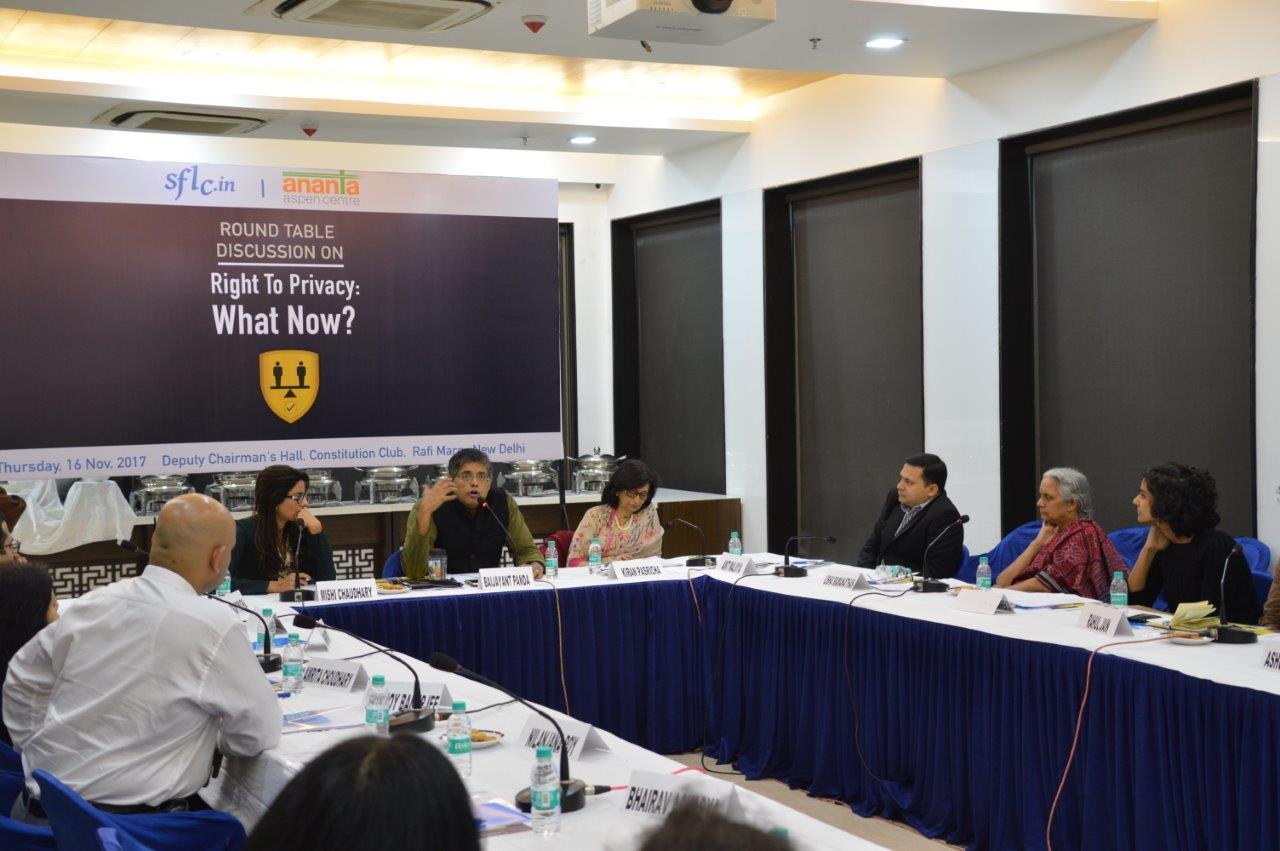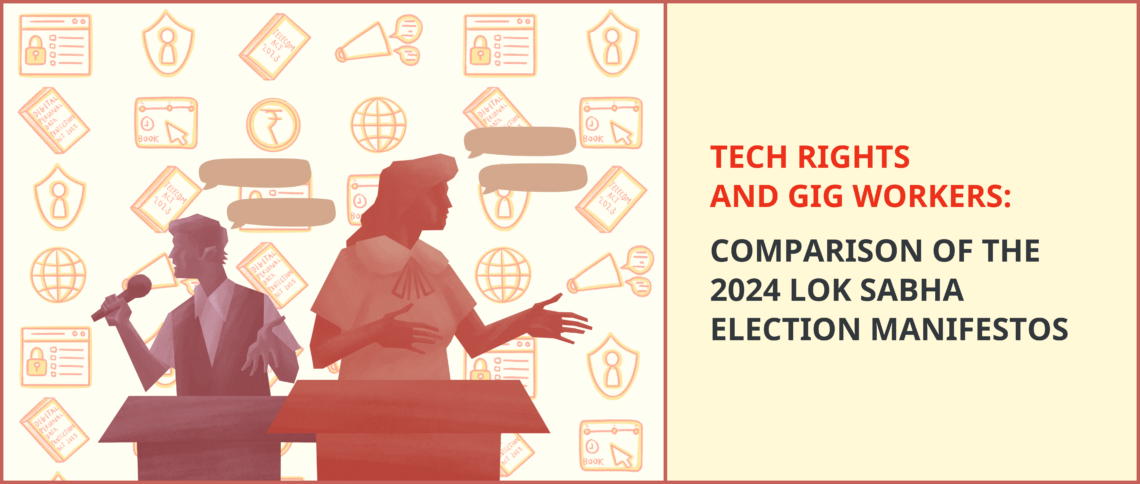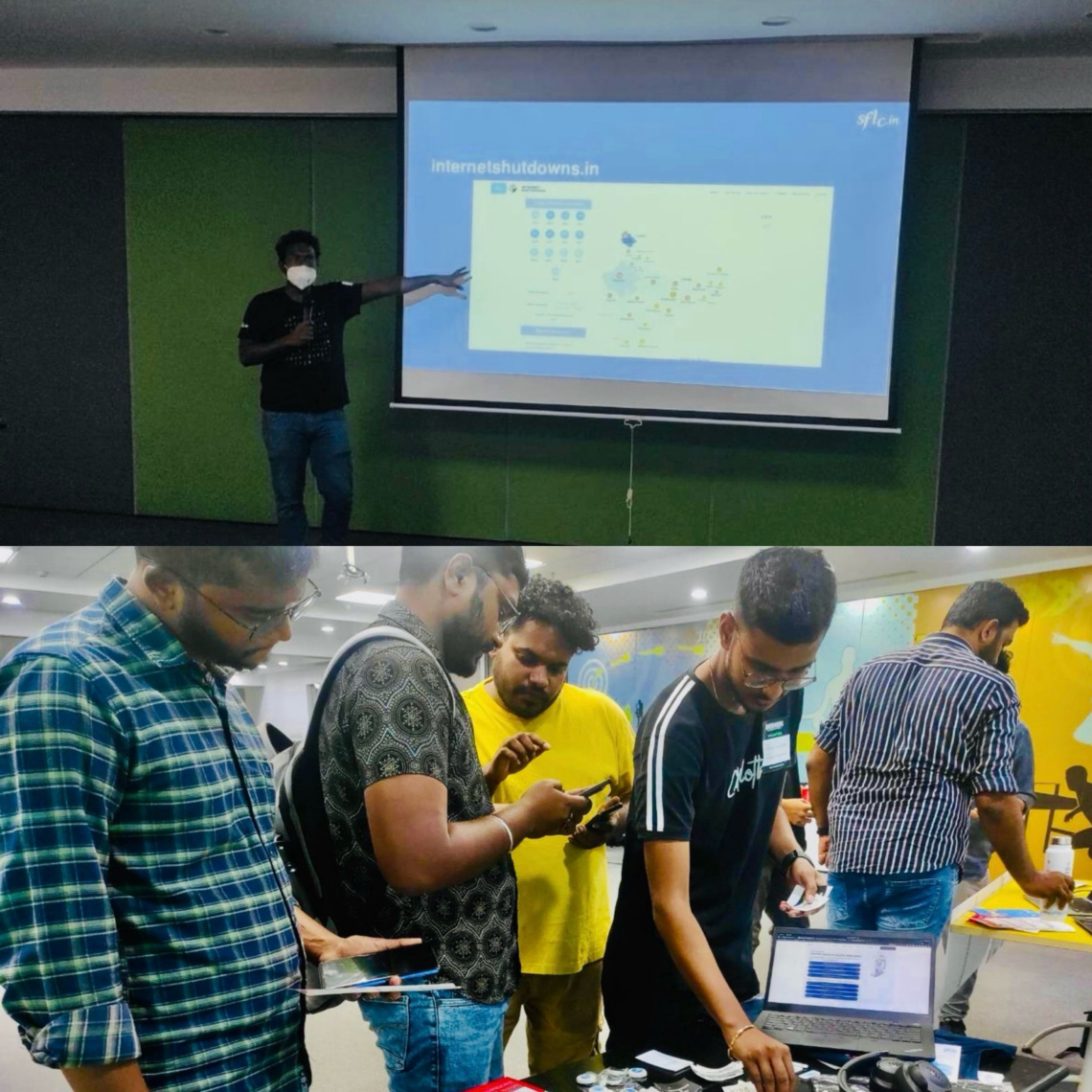New Delhi, November 16th, 2017: Several law and technology experts along with representatives from civil society, industry and other stakeholder groups discussed a number of legal and technological issues related to the right to privacy in India at a round table discussion titled “Right to Privacy: What now?” convened by SFLC.in and Ananta Aspen Centre yesterday at the Constitution Club of India, New Delhi. Baijayant Jay Panda, Member of Parliament & Trustee, Ananta Centre, chaired the discussion.
This closed-door discussion held under the Chatham House rule covered the key tenets and principles to be included in a legal framework that guarantees the right to privacy to people of India. Baijayant Panda had tabled a Private Member’s Bill on privacy and data protection during the monsoon session of Parliament.
While participants expressed their unanimous appreciation for the Indian Supreme Court’s recent ruling where the existence of a fundamental right to privacy in India was formally recognized, some felt the Constitution still lacked a well-defined structure to make sure that people and organizations respect the right to privacy in everything they do.
The issue of informed consent was also debated at length. While there was a general consensus that it is extremely important, some were of the opinion that informed consent alone is no longer enough to ensure respect for user privacy. It was said that consent must not only be informed, but also meaningful by giving users true control over their data. Views saw an extent of divergence when it came to regulatory models, as some called for overarching regulations with extensive provisions on collection, retention and sharing of data while others stressed the importance of light-touch regulations for enabling growth in the industry.
The discussion also briefly touched upon the controversies around Aadhaar, with some saying that it has the potential to significantly enhance existing governance models and others maintaining that the privacy and security concerns it raises are simply too grave to overcome.
Public/private amalgamation of data for monetization purposes was another area of concern highlighted during the discussion. While it was agreed that ensuring the highest levels of protection for personal data is an urgent need, the requirement of an effective and safe framework to make relevant data available to public for research and innovation purposes was also stressed upon by many.
About SFLC.in:
SFLC.in is a donor-supported legal services organisation that brings together lawyers, policy analysts, technologists, and students to protect freedom in the digital world. SFLC.in promotes innovation and open access to knowledge by helping developers make great Free and Open Source Software, protect privacy and civil liberties for citizens in the digital world by educating and providing free legal advice and help policy makers make informed and just decisions with the use and adoption of technology.
About Ananta Aspen Centre:
An independent organization, Ananta Centre is registered under the Indian Trust Act. It focuses on leadership development and encourages frank and open dialogue on the most important issues facing Indian society, to help foster its transformation. The Centre also engages civil society, business, governments and other key stake – holders on issues of importance to India’s development, foreign policy, strategic affairs and national security. The Centre serves as a convening body for exchange of ideas, broadening perspectives and enhancing capacity to create sustainable solutions on a wide variety of issues.




